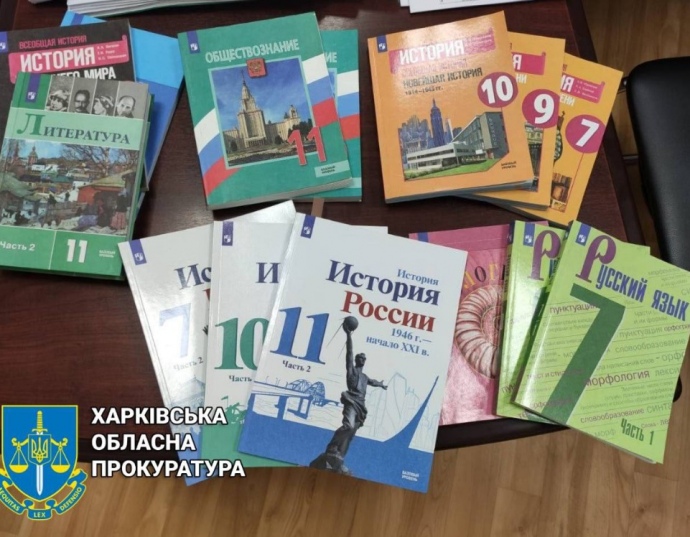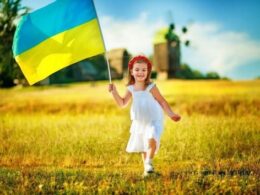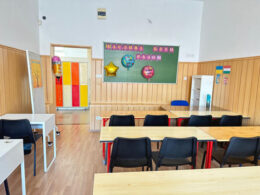In the temporarily occupied Luhansk Oblast, a repressive shift in the education sector is being imposed by the Russian occupying forces. The Luhansk Oblast State Administration reports that Ukrainian language and literature teachers are being redirected for retraining to teach Russian language and literature instead.
This requalification involves a 256-hour course conducted by Luhansk State Pedagogical University under Russian control. The courses aim to retrain teachers, particularly those who have qualifications in Ukrainian language and literature and those whose qualifications have not been updated since 2014.
Artem Lysohor, the head of the Luhansk region, highlighted the ongoing military confrontations in areas like Bilohorivka, where Ukrainian forces are enduring multiple daily attacks from Russian forces. He noted significant use of mortars, artillery, and at least 17 UAVs by the enemy, particularly near Makiyivka and Nevske, where strikes have been intensive. The situation also extends to the widespread destruction caused by shelling, with recent incidents in Novoliubivka where residential buildings were damaged.
Additionally, the region is grappling with severe administrative neglect, especially in healthcare. A staggering 99% of the funds allocated last year for a prescription reimbursement program in the so-called "LNR" were left unused due to the inaction of the local health ministry.
The imposition of Russian cultural and educational norms in occupied Ukrainian territories is a well-documented strategy used by Russian authorities to solidify control and erode Ukrainian identity. This strategy includes several approaches:
Replacement of Ukrainian literature: In areas like Donetsk and Luhansk, Russian authorities have nearly eradicated Ukrainian literature, categorizing many Ukrainian titles as "extremist" and replacing them with Russian books. An estimated 2.5 million Russian books were sent to these territories in 2023 alone, significantly altering the cultural landscape and educational content.
Modification of educational curricula: Russian authorities have seized control of the educational systems in the occupied territories, introducing curricula that reflect Russian historical and cultural perspectives while denying the legitimacy of Ukrainian sovereignty and identity. In schools, children are exposed to intensified Russian propaganda, which includes narratives that discredit Ukrainian national heroes and deny the existence of the Ukrainian language.
Forced Russification and deportation: There have been massive efforts to change the demographic composition of occupied regions by deporting Ukrainian residents and replacing them with Russian citizens. This is often coupled with coercive tactics to ensure that remaining Ukrainians assimilate into Russian sociocultural norms.
Political indoctrination: Educational settings are used to indoctrinate children with Russian nationalist propaganda, similar to historical practices in totalitarian regimes. This includes 'political minutes' where children are taught to view Russia as a liberator and Ukraine as the enemy, alongside distorted presentations of history.
Moreover, the Russian occupation has extended to manipulating the educational system to foster loyalty to Russia among Ukrainian children. This includes setting up military-style training within schools and promoting Russian military achievements as heroic. Ukrainian children were compelled to participate in activities that glorify the Russian military and were even indoctrinated in special camps where they were taught to shoot and undergo military training.
These actions are part of a broader strategy to assimilate occupied territories into Russia's socio-political orbit, undermining Ukrainian national identity and resistance to occupation. The international community and Ukrainian authorities have documented these practices as part of Russia's hybrid warfare tactics.
Read also:
[West needs to catch up with Ukraine on fighting Russian] [Russia's propaganda war: How Putin bought Germany] [Report: Western media underestimate Russian] [Russian war propaganda: strategic/tactical narratives, and] [Russian propaganda is a war tool and must be ostracized] [Russian propaganda & genocidal rhetoric intensify against]




